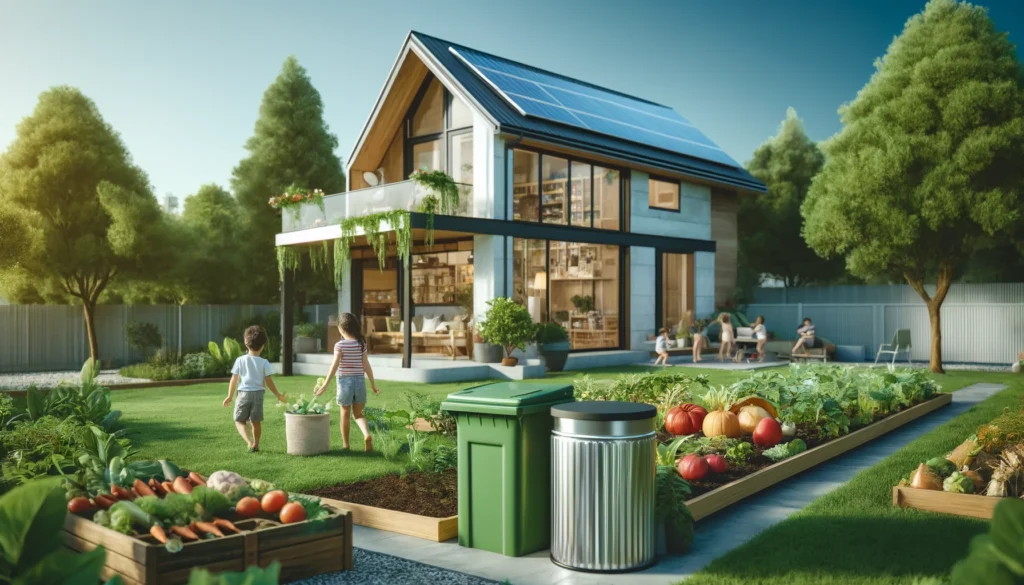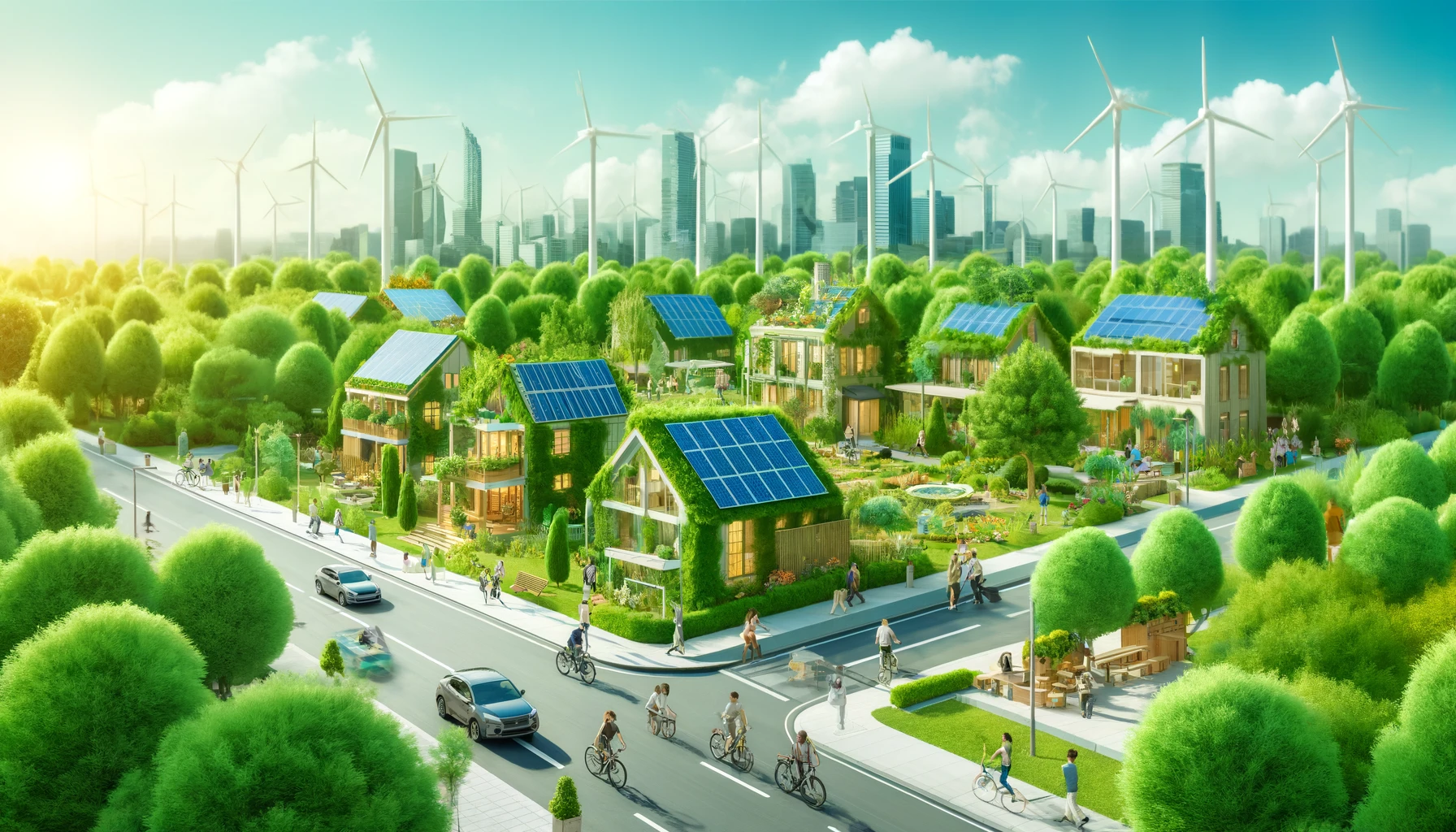Introduction
In recent years, the concept of sustainability has moved from the fringes of environmental activism into the mainstream. As we face unprecedented challenges from climate change, resource depletion, and pollution, the importance of adopting sustainable practices has never been more critical. This guide aims to provide you with a comprehensive understanding of sustainability, offering practical tips and insights on how you can contribute to a greener future.

Understanding Sustainability
Sustainability refers to the ability to meet our present needs without compromising the ability of future generations to meet theirs. It encompasses three main pillars: environmental protection, social equity, and economic viability. By balancing these pillars, we can create a more resilient and just world.
Environmental Protection
Environmental protection involves preserving natural resources and reducing pollution. This can be achieved through various means, such as:
- Conservation: Protecting ecosystems and biodiversity by reducing habitat destruction and overexploitation of resources.
- Renewable Energy: Transitioning from fossil fuels to renewable energy sources like solar, wind, and hydropower.
- Waste Reduction: Implementing practices to reduce waste, such as recycling, composting, and minimizing single-use plastics.
Social Equity
Social equity ensures that all people have access to primary resources and opportunities, promoting fairness and justice within society. Key aspects include:
- Community Development: Supporting local economies and communities through fair trade practices and local sourcing.
- Education: Providing education and awareness about sustainable practices and the importance of sustainability.
- Health and Well-being: Ensuring access to clean water, air, and nutritious food for all individuals.
Economic Viability
Economic viability focuses on creating financial systems that support long-term sustainability. This involves:
- Sustainable Business Practices: Encouraging businesses to adopt eco-friendly practices and produce sustainable products.
- Green Jobs: Promoting employment in sectors that contribute to environmental sustainability, such as renewable energy and conservation.
- Circular Economy: Shifting from a linear economy (make, use, dispose) to a circular one where resources are reused, repaired, and recycled.
Practical Steps to Go Green,
Adopting sustainable practices doesn’t require drastic lifestyle changes. Here are some simple yet effective steps you can take to make a positive impact:
Reduce Energy Consumption
- Switch to LED Bulbs: LED bulbs use less energy and last longer than traditional incandescent bulbs.
- Unplug Devices: Unplug electronics when not in use to reduce phantom energy consumption.
- Use Smart Thermostats: Smart thermostats optimize heating and cooling, reducing energy use and saving money.
Choose Sustainable Transportation
- Walk or Bike: Whenever possible, choose walking or biking over driving.
- Public Transport: Use public transportation to reduce your carbon footprint.
- Electric Vehicles: Consider switching to an electric or hybrid vehicle to decrease emissions.
Support Sustainable Products
- Eco-friendly Brands: Support companies that prioritize sustainability in their products and operations.
- Reusable Items: Opt for reusable bags, bottles, and containers instead of single-use plastics.
- Organic and Local Foods: Choose organic and locally sourced foods to reduce the environmental impact of your diet.
Reduce Waste
- Recycle: Familiarize yourself with your local recycling guidelines and ensure you’re recycling correctly.
- Compost: Composting organic waste reduces landfill use and provides valuable nutrients for your garden.
- Minimalism: Adopt a minimalist approach by buying only what you need and reducing overall consumption.
Sustainable Living Tips for Beginners
Sustainable Living Tips for Beginners
Embarking on a journey towards sustainable living can seem daunting, but starting with small, manageable changes can make a significant impact. Here are some beginner-friendly tips to help you start your green journey:
1. Conserve Water
Water conservation is a crucial aspect of sustainability. Simple practices like fixing leaks, taking shorter showers, and using water-efficient appliances can help reduce water usage. Collecting rainwater for gardening is another effective way to conserve this precious resource.
2. Mindful Eating
Your food choices have a significant environmental impact. Reducing meat consumption, especially beef, can lower your carbon footprint. Embrace a plant-based diet or incorporate more plant-based meals into your routine. Additionally, avoid food waste by planning meals and storing food properly.
3. Eco-Friendly Home
Creating an eco-friendly home can be as simple as making conscious choices about the products you use. Opt for non-toxic cleaning products, energy-efficient appliances, and sustainable materials for home improvements. Using natural light and proper insulation can also reduce energy consumption.
4. Sustainable Fashion
The fashion industry is a significant contributor to environmental degradation. Choose clothing made from sustainable materials like organic cotton, bamboo, or recycled fabrics. Support brands that prioritize ethical production practices and consider buying second-hand or upcycling old clothes.
5. Reduce Plastic Use
Plastic pollution is a severe environmental issue. Reduce your plastic use by choosing products with minimal or no plastic packaging. Carry reusable shopping bags, refuse plastic straws, and opt for products in glass or metal containers when possible.
The Role of Technology in Sustainability
Technological advancements play a vital role in promoting sustainability. Innovations in renewable energy, waste management, and resource conservation are paving the way for a greener future.
Renewable Energy
Technological innovations in solar, wind, and hydropower are making renewable energy more accessible and affordable. Advancements in battery storage and smart grid technology are also improving energy efficiency and reliability.
Waste Management
Innovative waste management solutions, such as waste-to-energy technologies and advanced recycling systems, are helping to reduce the amount of waste sent to landfills. Composting technologies and biodegradable materials are also contributing to more sustainable waste management practices.
Resource Conservation
Technologies like precision agriculture, which uses data and AI to optimize farming practices, are helping to conserve water and reduce the use of harmful pesticides. Similarly, intelligent water management systems are improving the efficiency of water use in urban and agricultural settings.
Community Involvement and Advocacy
Sustainability is a collective effort that requires community involvement and advocacy. Here are some ways to get involved:
- Join Local Groups: Participate in local environmental groups and initiatives to support sustainability efforts in your community.
- Advocate for Policy Change: Support policies and legislation that promote sustainability at the local, national, and global levels.
- Educate Others: Share your knowledge and experiences with friends, family, and colleagues to inspire others to adopt sustainable practices.
Conclusion
Sustainability matters now more than ever. By understanding the principles of sustainability and adopting practical green practices, we can contribute to a healthier planet and a brighter future for generations to come. Whether it’s reducing energy consumption, supporting sustainable products, or advocating for policy change, every action counts in the journey towards a more sustainable world.
Start small, stay informed, and remember that your efforts, no matter how minor they may seem, can lead to significant positive change. Together, we can build a sustainable future.
